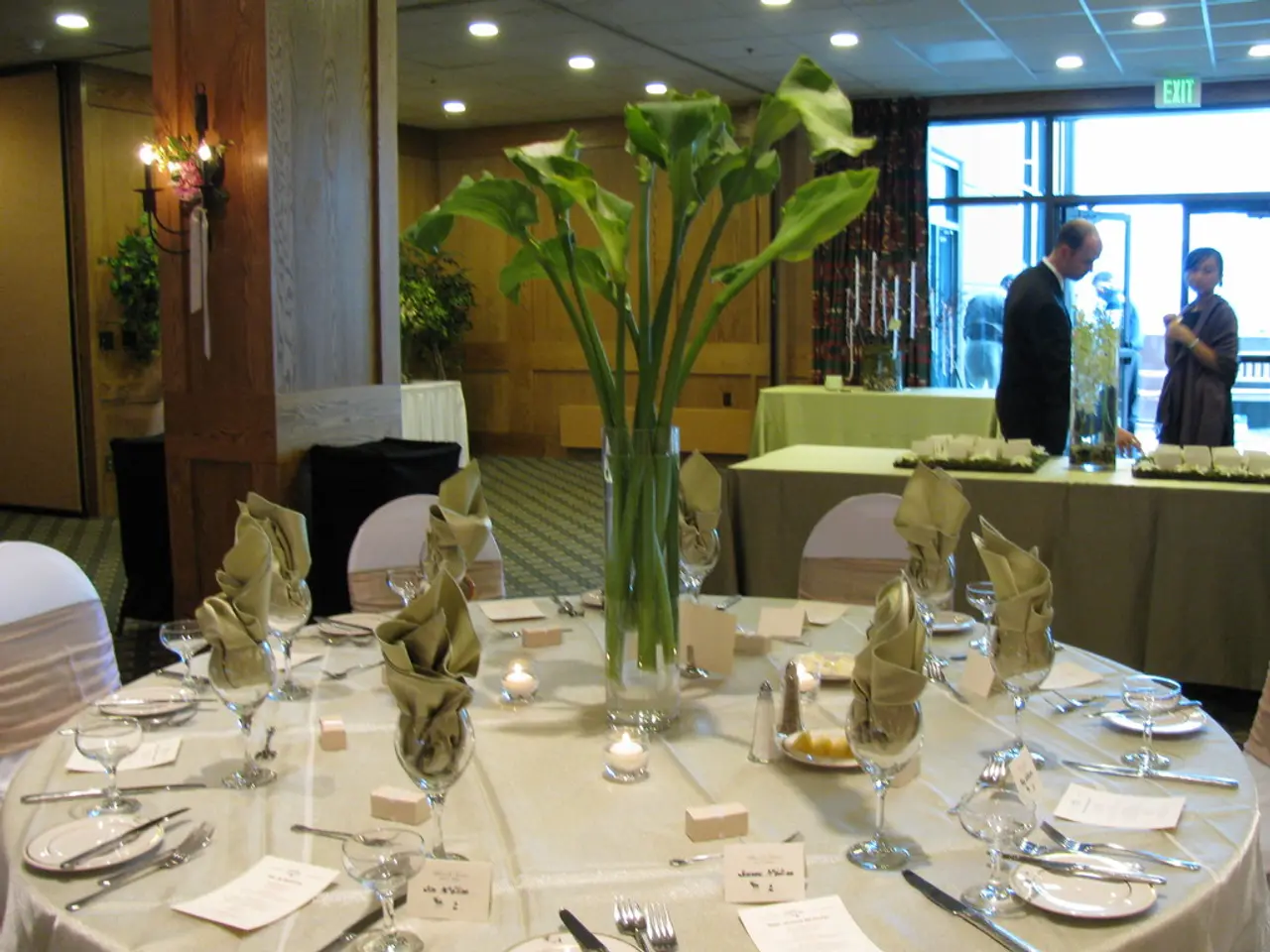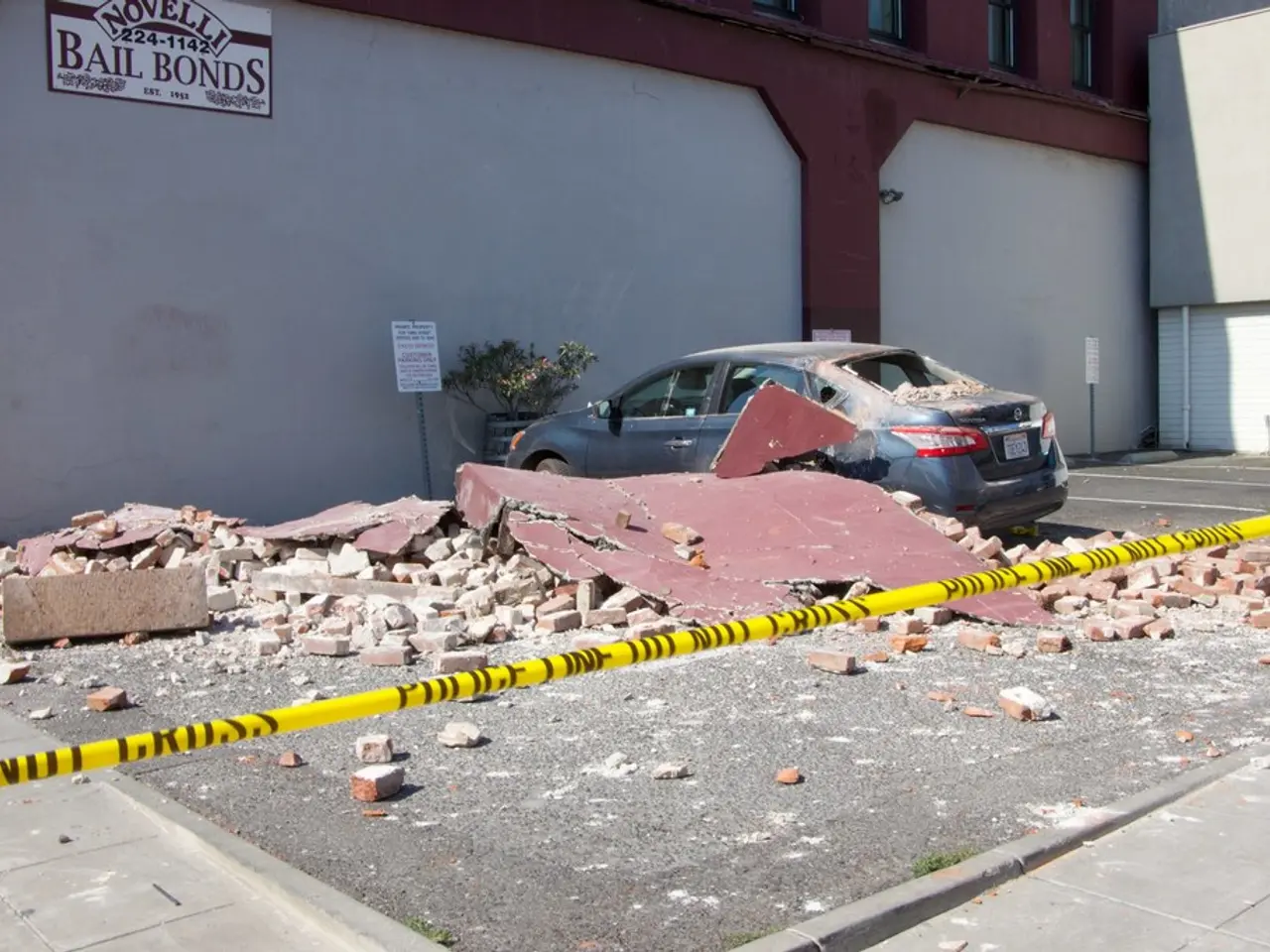Decline in Hospitality Sector Demand Due to Reeves' National Insurance Increase impacts Employment
The UK hospitality industry, a significant contributor to the nation's economy, is currently grappling with a wave of job losses and financial strain, largely attributed to the increase in employer National Insurance contributions (NICs). Since the rise in NICs took effect, the sector has shed **69,000 jobs**, reversing previous growth trends and marking the steepest peacetime job losses outside the pandemic period.
Industry leaders and trade bodies have expressed grave concerns about the disproportionate impact of the tax burden, including increased employer NICs and rising business rates, on hospitality businesses. These pressures have led to widespread job cuts, reduced operating hours, and the scrapping of investment plans, posing a threat to the viability of many venues, particularly independent ones.
The British Beer & Pub Association and UKHospitality have warned that unless the government reverses these tax hikes and implements meaningful business rate reform, the sector's economic contribution, which was £34.3 billion last year, and its ability to provide employment and support local communities will be undermined. The sector describes the government's growth rhetoric as hollow in the absence of real tax relief, and the ongoing tax increases are seen as putting the future of pubs, restaurants, and other hospitality businesses at risk, causing closures and job losses across the country.
One third of businesses have already reduced trading hours, with many pubs closing earlier and restaurants no longer opening before lunch. A third of businesses are planning further staff reductions this summer, and 70% of businesses are now cutting staff. Worryingly, 60% of firms are fast-tracking automation and technology investment to replace labour.
The rise in employer NICs has pushed the rate from 13.8% to 15% and lowered the salary threshold to £5,000. This increase, set to reach 15% in the 2025-26 tax year, has been a key driver behind the significant hospitality job losses and financial strain in the sector.
MPs from various parties have criticised the government for placing "insurmountable burdens" on the hospitality sector in the House of Commons. Conservative MP Andrew Griffith described the approach as "hostile" and a risk to young people's first step on the career ladder. Liberal Democrat MP Alistair Carmichael warned that the sector is being "taxed out of existence."
UKHospitality chief executive Kate Nicholls has warned that up to 200,000 workers could lose their jobs within the first full year of the policy. Fiscal headwinds could prompt further tax moves, with leading economists warning that tax hikes may have to go further. Analysts at Deutsche Bank have warned that falling employment and sluggish growth could push borrowing even higher in the second half of the year.
In response, Nicholls has proposed extending the National Insurance exemption for under 21s to workers under 30 and those re-entering the workforce after long-term unemployment, a move she believes would encourage firms to hire again and reduce benefit dependency, being cost-neutral for the Treasury.
While the government is also piloting reforms such as relaxing licensing laws and promoting outdoor dining to support the sector, these initiatives have not counterbalanced the fiscal impact of increased NICs on employers. The hospitality industry awaits decisive action from the government to alleviate the financial strain and prevent further decline.
- The hospitality sector, which contributes significantly to the UK's economy and employment, is facing a threat due to the increased employer National Insurance contributions (NICs) and other taxes, leading to job losses and financial strain.
- The British Beer & Pub Association and UKHospitality have urged the government to reconsider the tax hikes, particularly the increase in employer NICs, and implement meaningful business rate reform, to prevent the sector's economic contribution from being undermined.
- The rising taxes and employer NICs have led to automation and technology investment in the hospitality sector, as businesses seek to replace labor and cut costs, potentially posing a long-term threat to employment opportunities and the viability of many venues.




